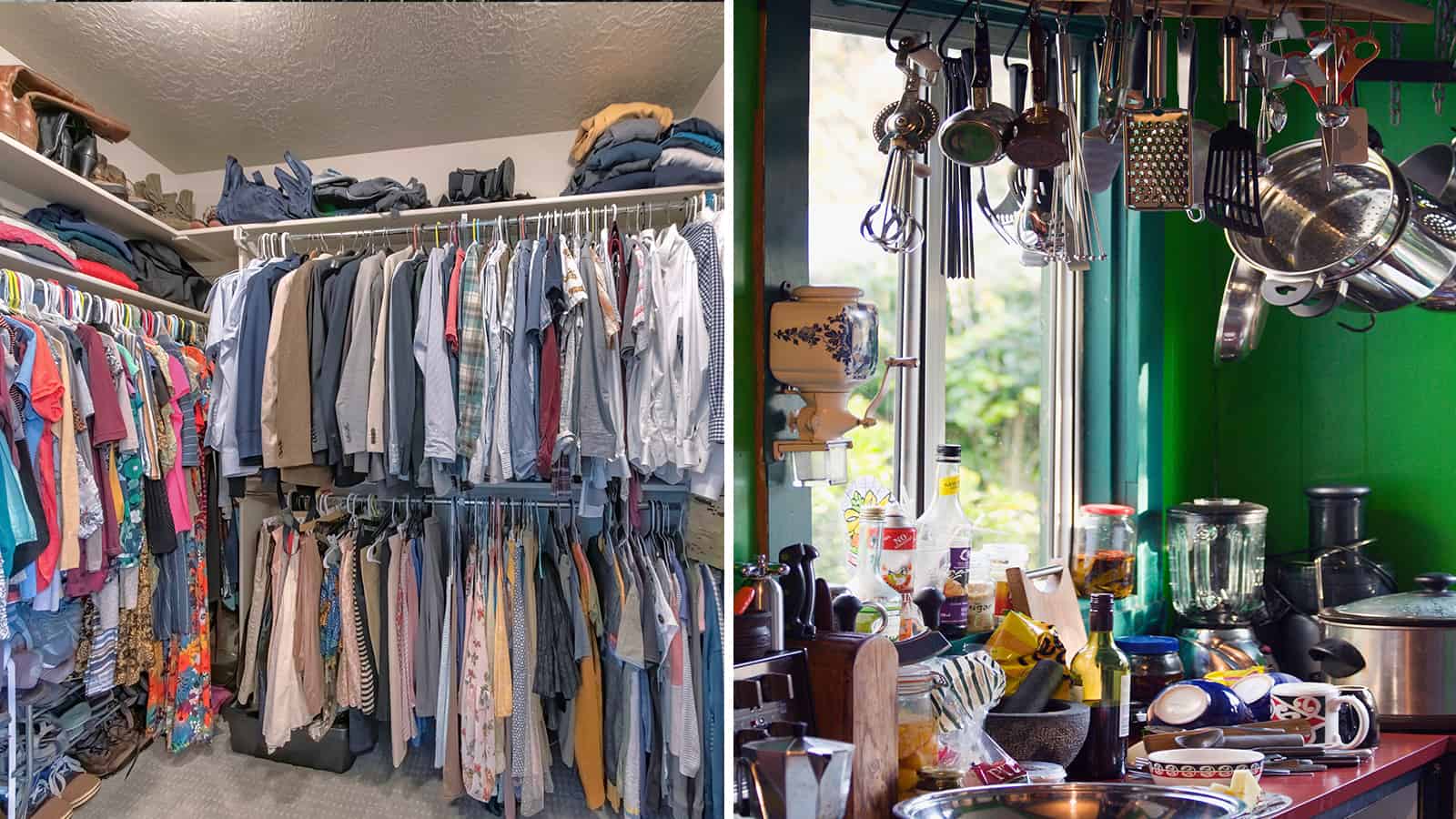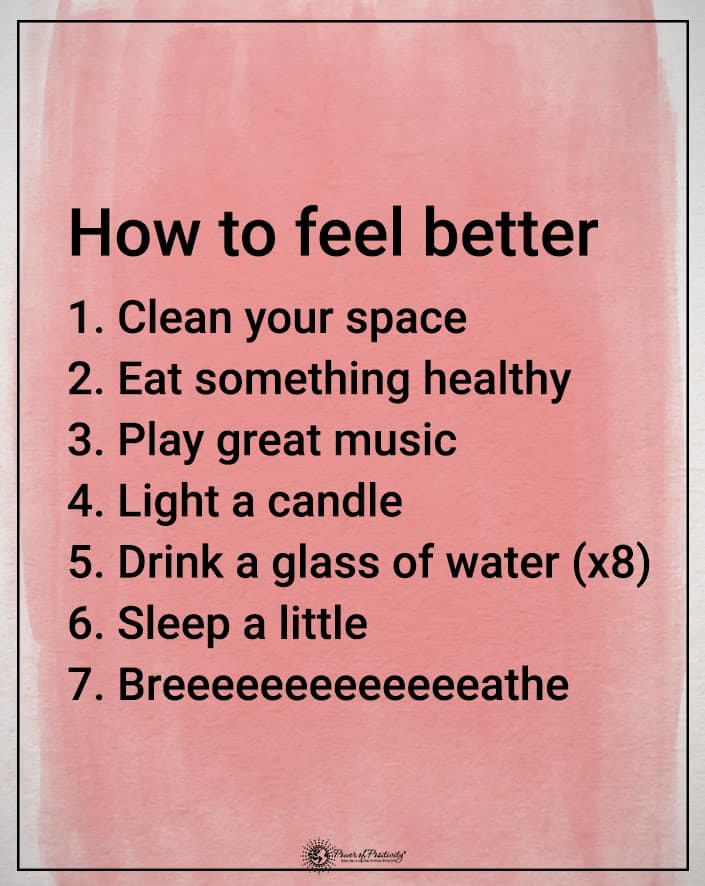Do you feel like you’re trying to manage a storage facility by living in your home? Do you classify yourself as a maximalist or a minimalist? Maybe you’re so sentimental and practical that it bothers you to get rid of anything.
However, sometimes your stuff may be controlling you rather than the other way around, creating an unhealthy place to dwell. Minimalism is the way to go as there’s no need for mounds of storage.
Making Sense of All That Stuff
Whether you consider yourself a collector, hobbyist, or extremely thrifty, you may have a lot of possessions. Since the difference between trash and treasure is subjective, others may not see your collections as you do. They may see a bottomless hoard taking over your home, while you see it as valuable things you could never let go of.
Where do you distinguish between keeping things that matter or clearing the clutter? Do you find yourself in a defensive mode with your partner or family? Look around the room you’re in right now. What can you let go easily, and what are you adamant about keeping?
That never-ending pile of papers, books, and old magazines may look harmless. However, an article by the Royal Australian College of General Practitioners says drowning in clutter can have negative consequences. The report says extra stuff can cause visual distractions, depression, anxiety, emotional distress, and a lack of focus.
Fifteen Signs You Have Too Much Stuff

Getting caught up in a cluttered vortex is easy when you have many interests and enjoy beautiful things. How do you know when you have too much stuff? These 15 clues may help you decide that it’s time to declutter and breathe again.
1. You Can’t Find What You Need When You Need It
One of the most common arguments for mounds of clutter is that you save things for a rainy day. Unfortunately, you can’t find anything you need when the emergency does come. Organizing essential documents and other things is challenging when they are in piles everywhere in your house.
2. Every Surface in Your House is Covered
Everyone loves to decorate their homes with the things they love. It’s your way of displaying your style and what matters to you. When your décor and collections are within reason, it creates a beautiful space for you and your family.
However, there is such a thing as having too much of a good thing. For example, maybe you like to collect dolls. It loses appeal if almost every inch of your place is covered with these classic keepsakes.
Some people enjoy the maximalist style, while others are minimalists. It’s okay to maximize your style within reason. You may need to rethink your scheme if you don’t have space to sit, eat at the table, or sleep in a bed.
3. You Spend Money on Too Much Stuff You Already Own
You’re not alone if you are always looking for a good bargain. Consider how many people browse retail, grocery, and thrift store aisles to find sales and other hefty discounts. It’s a financially responsible habit.
The downside is if you’re throwing merchandise in your cart, you don’t need it, as it’s on sale. Plus, you may be buying duplicates of things you already have because you can’t find the ones you own. The problem is you may be losing money instead of saving it.
Sadly, the problem can escalate, and you may find yourself racking up credit card debt to buy things you don’t need. Such compulsive spending and hoarding have destroyed people’s credit and relationships. No material goods are worth that sacrifice.
4. Every Item Doesn’t Have a Designated Spot
It’s easier to find what you need when you have a place for everything, and everything is in its place. Too much stuff piled up with no designated storage caused frustration and wasted searching for things.
5. Too Much Stuff Creates Chaos
Your home should be a peaceful haven where you can relax and close the door to the world. Serenity is a state of mind when relaxed and at peace in your surroundings. Clutter creates a visual distraction and an atmosphere of chaos and stress, which is no way to live.
6. Meaningful Pieces Can Be Deteriorated or Ruined
There’s nothing wrong with holding on to precious family heirlooms. They evoke memories and love from generation to generation. Maybe you enjoy displaying your keepsakes around your home for all to admire.
What beauty do any sentimental pieces bring when piled in boxes in the garage or basement? Some of your favorite keepsakes risk being ruined by improper storage. Instead of finding a place of honor in your space, they must compete with meaningless junk.
7. You Feel Like You’re Drowning
Many people who have clutter issues describe it as drowning in stuff. It’s as if they are surrounded by clutter over their heads that rob their breath. Do you feel content or relaxed in your space or like you’re sinking deeper and deeper into your collections?
8. It’s Hard to Concentrate Amongst the Clutter
According to an article published by Stanford University, people surrounded by clutter are more likely to be distracted. For instance, maybe you’re trying to finish an important project for work. Instead of focusing on your task, you’re worried about a bookcase that’s about to burst with DVDs you never watch.
9. Can Affect Your Physical Health
When you have vast collections of nick-nacks, dusting them takes much extra time. You may also have tons of stuff stored in boxes and totes, quietly collecting dust, pet dander, hair, mold, or mildew. Not only are these primary sources of allergies, but they can also cause respiratory issues and other severe conditions.
Another threat to your health is the possibility of vermin invading excessive clutter. Rats and mice are notorious for hiding in piles of decaying newspapers, magazines, or old clothes. It can also attract roaches and other disease-carrying critters that can destroy your belongings and jeopardize your life.
10. Too Much Stuff Is Not Good for Your Mental Health
Just because you have a bit of clutter around your place doesn’t constitute mental illness. However, an article by the Mayo Clinic shares that overwhelming clutter and hoarding are tell-tale signs. Moreover, it’s harder to let go and may cause you even more anxiety and depression.
11. The Dwelling on Excess Can Affect Your Weight
Another health issue that extra clutter may contribute to is weight gain and obesity. A study published by the Journal of Abnormal Psychology discusses a possible genetic connection between obesity and compulsive hoarding. You may also be too obsessed with your clutter to follow a proper diet and exercise regimen or too overwhelmed to take on a new task.
12. You Block Feng Shui
Did you know your house has a natural energy that can positively or negatively influence your body, mind, and spirit? It’s the leading principle of Feng Shui of ancient China and India. According to these philosophies, clutter blocks your home’s energy, creating a stagnant and negative atmosphere.
Think of this positive energy as a river. It needs open space to flow and nourish life in and around it. When you declutter your home, you open the positive energy flow throughout each room.
13. You Can’t Relax
It’s difficult to kick back and relax when your home is cluttered. For one, you may not have enough room to sit because of the boxes and other piles of things. Secondly, you feel chronic guilt because you think you should clean and organize each time you see your hoard rather than relax.
14. Others Don’t Feel Welcome or Comfortable
How long has it been since you’ve invited family or friends over for dinner or to watch a movie? Even if you have the occasional guest, how do they react when they enter your home? Are they instantly at ease or feel claustrophobic because your belongings surround them?
Are you embarrassed to have company because your house is overflowing with stuff? You may think your family and friends will judge you harshly or think less of you. If your possessions are more of a hindrance than a blessing, it’s time to sort and prioritize.
15. Too Much Stuff Makes Transitioning from Work to Home More Challenging
When you leave your job for the day, do you often bring it home with you? Understandably, your career may require extra work after hours. However, do you have a separate workspace, or is it spread throughout each room?
Not only does stuff from work clutter your private space, but it also clutters your brain. It’s primarily a hindrance if you make the mistake of creating office space in your bedroom. Your mind is focused on the stacks of work instead of relaxation, sleep, and romance.
Final Thoughts on Having Too Much Stuff
You can regain control of your life when you learn how to control the clutter. There’s nothing wrong with having beautiful and sentimental things that bring you joy. If you balance maximalism and minimalism, your items can enrich your home life instead of overpowering it.




















